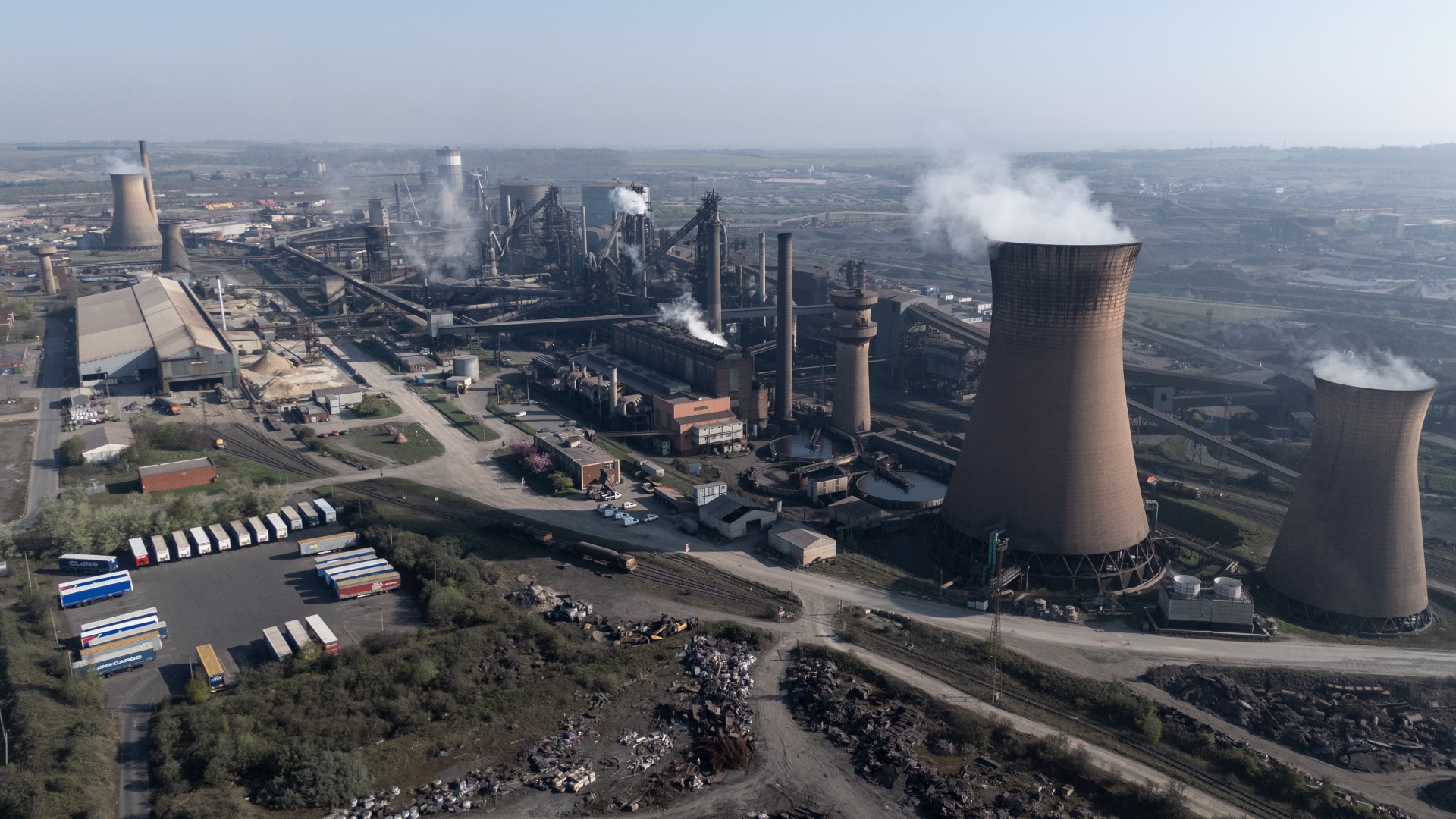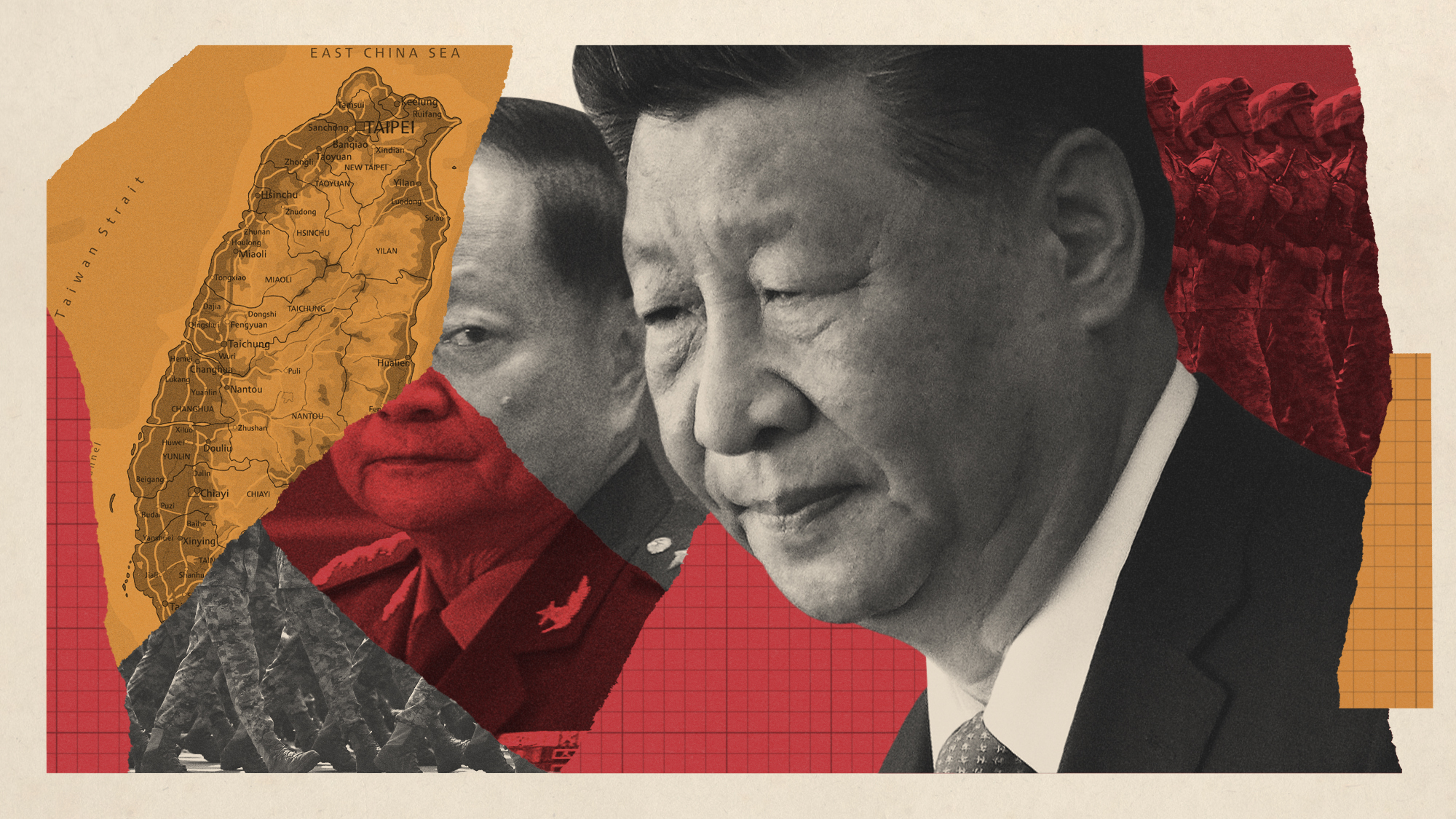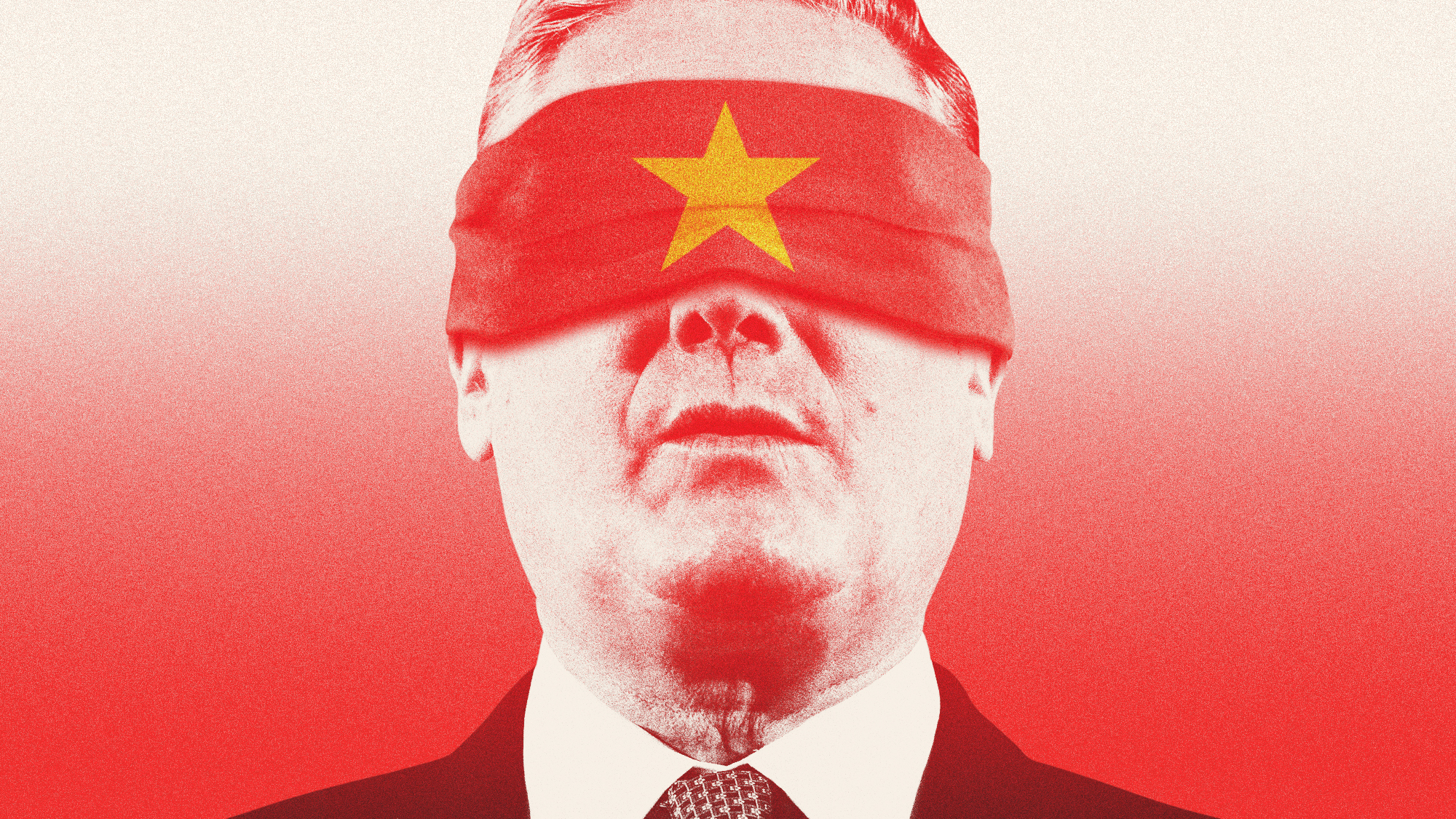Did China sabotage British Steel?
Emergency situation at Scunthorpe blast furnaces could be due to 'neglect' by Chinese owners but caution is needed, says business secretary

A free daily email with the biggest news stories of the day – and the best features from TheWeek.com
You are now subscribed
Your newsletter sign-up was successful
Government officials trying desperately to save British Steel believe there was "a plot to sabotage" its Scunthorpe plant by its Chinese owners, said The Independent.
The government took control of the company on Saturday, kicking off a "frantic hunt" to secure the essential raw materials needed to keep the plant's blast furnaces operational. Jingye, the Chinese firm that owns British Steel, had threatened to turn off the furnaces, after which it would be "practically impossible" to bring them back into action.
Some civil servants, union bosses and China critics have suggested that Jingye deliberately let the raw materials run out, with the aim of "shuttering the blast furnaces and making the UK reliant on Chinese exports of so-called virgin steel".
The Week
Escape your echo chamber. Get the facts behind the news, plus analysis from multiple perspectives.

Sign up for The Week's Free Newsletters
From our morning news briefing to a weekly Good News Newsletter, get the best of The Week delivered directly to your inbox.
From our morning news briefing to a weekly Good News Newsletter, get the best of The Week delivered directly to your inbox.
What did the commentators say?
It's "no surprise that a Chinese company – Jingye – is involved in all of this", said Iain Duncan Smith in The Telegraph. By shutting down the blast furnaces in the UK, it "knows that we will have to buy slab steel from China". That is "not a coincidence; it is all part of the plan".
Jingye is run by a former Chinese Communist Party official, said Duncan Smith, "and it is high time that we finally called that out". The UK should "not accept the pretence that this company is private or in any way detached from its government; a regime that is an ideological enemy of the West and a clear security threat to Western countries".
British Steel's Scunthorpe plant, which employs 2,700 people, "is the last plant in the UK producing virgin steel, which is used in major construction projects like buildings and railways", said the BBC. If Scunthorpe were to close "the UK would be the only member of the G7 group of leading economies without the ability to make" virgin steel.
Speaking to the BBC's Laura Kuenssberg on Sunday, Business Secretary Jonathan Reynolds stopped short of saying that there was deliberate "sabotage", suggesting the problem "might be neglect". But, he said, "the conscious decision not just to not order raw materials but to sell existing supplies of raw materials is the significant change that required the government to step in".
A free daily email with the biggest news stories of the day – and the best features from TheWeek.com
Reynolds said there was now a "high trust bar" for the British government dealing with Chinese companies and indicated that firms with links to Beijing should be excluded from "very sensitive" industries in the UK.
Workers at Scunthorpe, who prevented attempts by Chinese executives to access the site, had been "legitimately" concerned, said Gary Smith, the general secretary of the GMB union, also speaking to Kuenssberg on Sunday. "We were worried about industrial vandalism, and there was a worry about sabotage of the site, quite frankly… people on the site are furious at the Chinese owners," he said.
What next?
Reynolds has so far not elaborated on which industries China may be excluded from in the future, although steel is likely to be one of them. "I personally wouldn't bring a Chinese company into our steel sector," he said, calling it "a very sensitive area".
A spokesperson for China's foreign ministry urged the UK to "avoid politicising trade cooperation or linking it to security issues", warning that doing so could "impact the confidence of Chinese enterprises in going to the UK for normal investment".
In the meantime, Reynolds said he could not guarantee British Steel would be able to secure enough raw materials in time to keep the blast furnaces at Scunthorpe going. Emergency measures "are being explored, and more than a dozen other businesses have contacted British Steel to offer support in securing raw materials", said The Times.
Sorcha Bradley is a writer at The Week and a regular on “The Week Unwrapped” podcast. She worked at The Week magazine for a year and a half before taking up her current role with the digital team, where she mostly covers UK current affairs and politics. Before joining The Week, Sorcha worked at slow-news start-up Tortoise Media. She has also written for Sky News, The Sunday Times, the London Evening Standard and Grazia magazine, among other publications. She has a master’s in newspaper journalism from City, University of London, where she specialised in political journalism.
-
 The ‘ravenous’ demand for Cornish minerals
The ‘ravenous’ demand for Cornish mineralsUnder the Radar Growing need for critical minerals to power tech has intensified ‘appetite’ for lithium, which could be a ‘huge boon’ for local economy
-
 Why are election experts taking Trump’s midterm threats seriously?
Why are election experts taking Trump’s midterm threats seriously?IN THE SPOTLIGHT As the president muses about polling place deployments and a centralized electoral system aimed at one-party control, lawmakers are taking this administration at its word
-
 ‘Restaurateurs have become millionaires’
‘Restaurateurs have become millionaires’Instant Opinion Opinion, comment and editorials of the day
-
 The UK expands its Hong Kong visa scheme
The UK expands its Hong Kong visa schemeThe Explainer Around 26,000 additional arrivals expected in the UK as government widens eligibility in response to crackdown on rights in former colony
-
 ‘Hong Kong is stable because it has been muzzled’
‘Hong Kong is stable because it has been muzzled’Instant Opinion Opinion, comment and editorials of the day
-
 What do Xi’s military purges mean for Taiwan?
What do Xi’s military purges mean for Taiwan?Today’s Big Question Analysts say China’s leader is still focused on reunification
-
 How long can Keir Starmer last as Labour leader?
How long can Keir Starmer last as Labour leader?Today's Big Question Pathway to a coup ‘still unclear’ even as potential challengers begin manoeuvring into position
-
 What is at stake for Starmer in China?
What is at stake for Starmer in China?Today’s Big Question The British PM will have to ‘play it tough’ to achieve ‘substantive’ outcomes, while China looks to draw Britain away from US influence
-
 ‘It’s good for the animals, their humans — and the veterinarians themselves’
‘It’s good for the animals, their humans — and the veterinarians themselves’Instant Opinion Opinion, comment and editorials of the day
-
 What is China doing in Latin America?
What is China doing in Latin America?Today’s Big Question Beijing offers itself as an alternative to US dominance
-
 Is Keir Starmer being hoodwinked by China?
Is Keir Starmer being hoodwinked by China?Today's Big Question PM’s attempt to separate politics and security from trade and business is ‘naïve’